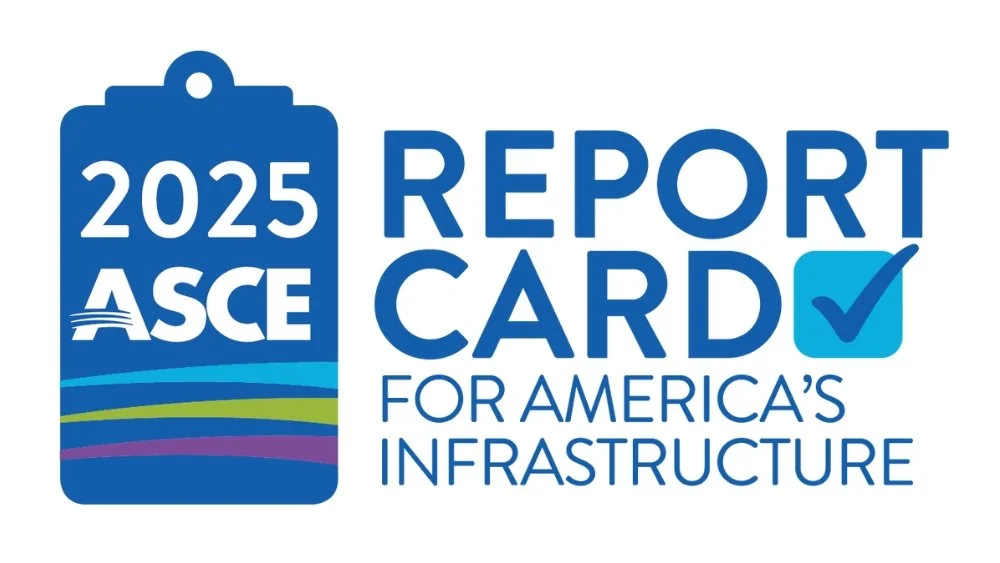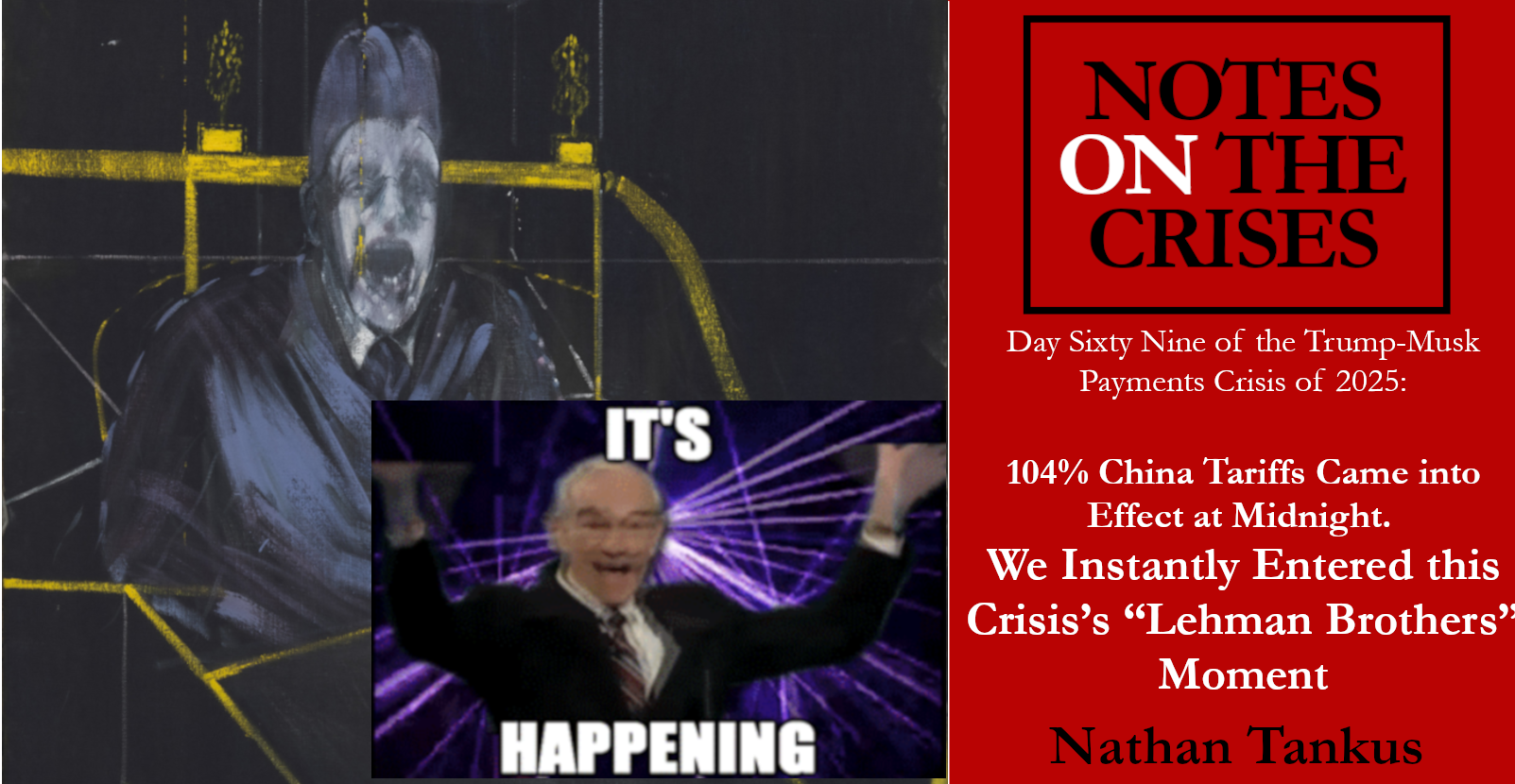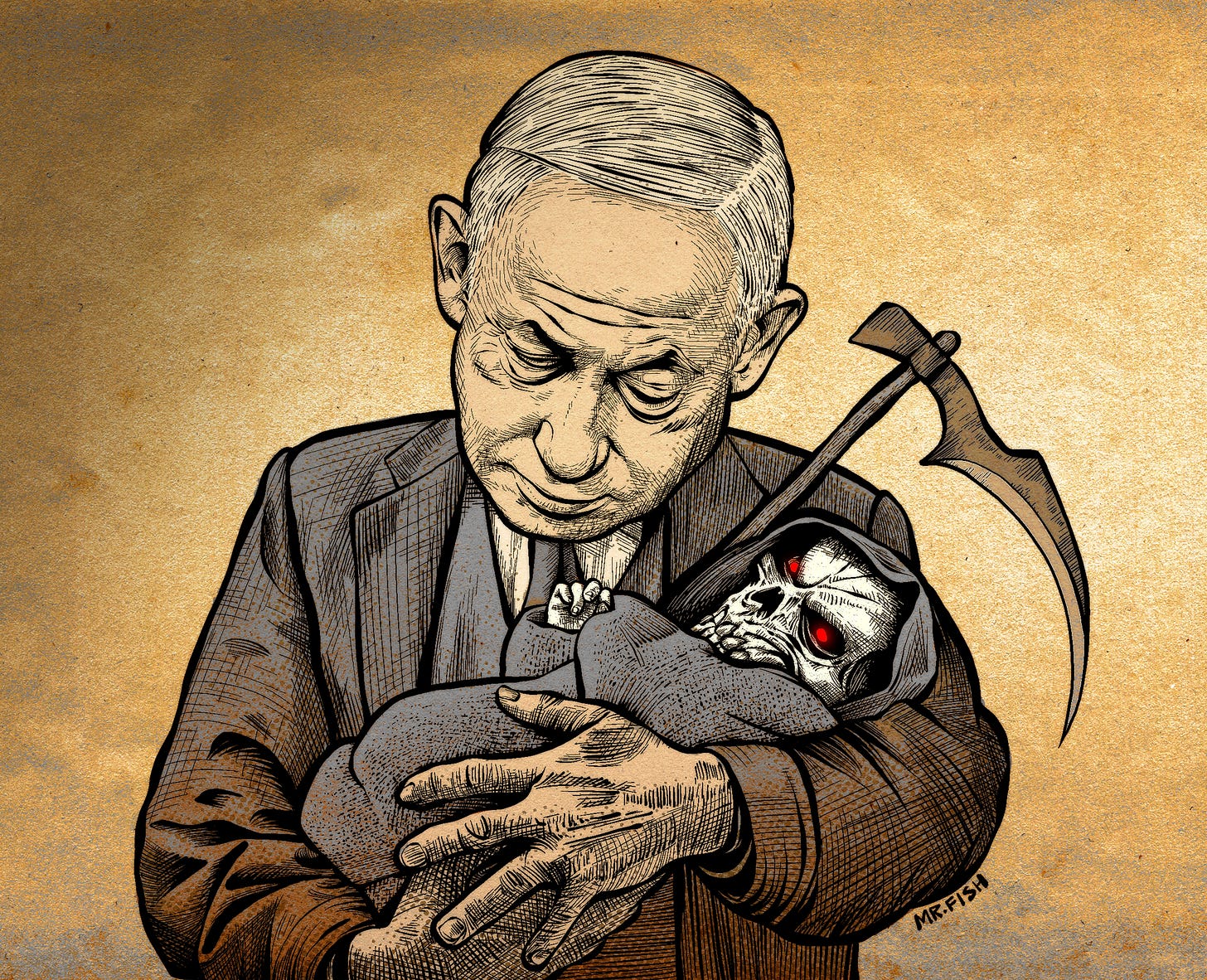From Oklahoma City to Trump
— —The following is an excerpt from my new book, The Last American Road Trip. You can order it here and get a signed copy here.
***
On the first day of our Route 66 trip, the media announced that Donald Trump would be indicted that week. I did not believe them because I had heard this claim every year since 2016 and throughout my 1980s and 1990s childhood, when reporters were more straightforward about his ties to organized crime. Trump had been under federal investigation since before I was born.
The year 2023 marked a half century of the Department of Justice opening an inquiry and then doing little about it. With every year his impunity grew, and with it his cruelty. He pushes and pushes, as if frustrated with the ability of the United States to contain its worst instincts, which are embodied in himself. He pushes and pushes, as if testing whether people are as weak and hypocritical as they seem, and no one in power pushes back, which means he is probably right. Trump ended the week he was supposed to be indicted by holding a fascist campaign rally in Waco, Texas.
The Numbers Don’t Lie: New Study Proves That Tactical Urbanism Can Boost Local Economy
— Organisation: Strong Towns —
Recent Shifts Seen in Consumers’ Public Policy Expectations
— Organisation: Federal Reserve Bank of New York — Publication: Liberty Street Economics —Is there a benefit to coming first on the ballot?
— Organisation: The Australia Institute —Randomising is an improvement on how we did it before 1984 – which was by alphabetical order of surname. Parties preferred “Andersons” and “Brownes” in those days!
When someone numbers 1, 2, 3, etc all the way down the ballot, that’s called a “donkey vote”. It is a valid vote – but not a very thoughtful one.
So do donkey voters give candidates at the top of the ballot an advantage?
Yes – topping the ballot is worth about 1 percentage point. Maybe a little more in electorates with younger voters and where fluency in English is lower.
That’s according to research by academics Amy King and Andrew Leigh – the same Andrew Leigh who is now a federal Labor MP.
If you think this is unfair, there is an alternative – called “Robson rotation”. In Robson rotation, the order of candidates rotates so a random ballot paper could have any candidate at the top of the paper. Liberal Senator James McGrath has pushed unsuccessfully for Robson rotation to be used in House of Representatives elections.
When there is a risk of confusion, the advantage of coming at the top of the ballot may be greater than 1 percentage point. In 2013, there were 45 columns on the NSW Senate voting paper – and the “Liberal Democrats” minor party drew first place. They won 9.5% of the vote, and a Senate seat for Senator David Leyonhjelm. Some of those voters likely saw “Liberal” and assumed it was the Liberal Party.
Join Me and Gabor Maté for “Palestine: The Moral Issue of Our Time”
— —Fighting the Ideological Lie
— Organisation: The Claremont Institute —This book aims to provide nothing less than a full-throated defense of moral and political sanity against the latest eruptions of ideological mendacity in our time. Its thesis is simple enough, but it needs the full resources of applied political philosophy to explain with adequate clarity and depth. The thesis? That the “ideological” project to replace the only human condition we know with a utopian “Second Reality” oblivious to—indeed at war with—the deepest wellsprings of human nature and God’s creation has taken on renewed virulence in the late modern world, just 35 years after the glorious anti-totalitarian revolutions of 1989.
Reframing the State: Economies at war and lessons for the coming climate catastrophe
— Organisation: Modern Money Lab, YouTube —Never mind Liberal v Labor – right now, it’s Big Gas v the rest
— Organisation: The Australia Institute —None of that has stopped the gas industry from trying to convince us for the past few years that a gas shortage is imminent. Instead of taking responsibility for the problem they are causing for they’ve relentlessly attacked the Victorian Labor Government, characterizing the banning of gas connections to new homes they see as “the demonisation of gas”, when in fact the government’s attempt to reduce the state’s dependence on gas is exactly the right response to gas industry engineered scarcity and price gouging.
All of the major political candidates at this election have acknowledged that there’s “no gas supply shortage in Australia”. Labor’s energy minister Chris Bowen, who admitted at the National Press Club yesterday that “a lot gets exported”, was the last to arrive at the party.
Gas producers and their industry associations try to get their voices heard in multiple ways. One approach is to contribute to major parties’ finances. In 2023-24, Australian Energy Producers disclosed almost $95,000 in contributions to the Labor Party, and a further $77,000 to the Coalition.
Postal vote applications – the number 1 source of complaints during election campaigns
— Organisation: The Australia Institute —If you were confused, don’t be embarrassed: the AEC says the way political parties use postal vote applications is the number 1 source of complaints during election campaigns.
Alexandra Koster at SBS News has written a detailed explanation of the strange and somewhat sketchy world of postal vote applications.
Postal vote application forms, packaged with information about a political party, are “reportedly used by political parties to collect data about voters before forwarding to the AEC”.
“At first glance, the material could be mistaken for official AEC communications as there is no party branding, aside from the use of red and blue party colours.”
A multi-party parliamentary inquiry recommended cleaning up the postal vote application practice:
· Postal vote applications no longer allowed to be bundled with other materials (like party promotional materials)
· Postal vote applications to be sent straight to the AEC, not routed through a party HQ for data harvesting.
The Albanese Government neglected these reforms in favour of an unfair and rushed deal with the Liberal Party to change the laws around Australian elections. Hopefully they are revisited after this election.
The Week Observed, April 11, 2025
— Publication: City Observatory —What City Observatory Did This Week
Election entrée: Australia is a world leader in electing Independent MPs
— Organisation: The Australia Institute —There were two in the first federal parliament, and between 1980 and 2004, 56 Independent MPs were elected to parliaments across Australia.
At times, they have held the balance of power and decided the fate of governments.
Of the 151 lower house MPs elected in 2022, 10 were independent candidates, and a further 6 represented minor or micro-parties.
Recent elections in comparable democracies have returned fewer, if any, Independents.
The UK’s 2019 election returned no Independents to the House of Commons, and the 2024 election only six (out of 650 members).
Neither Canada nor New Zealand elected any Independents in their most recent elections, nor did the US House of Representatives in 2022 or 2024.
Australia’s uniqueness has several causes.
Compulsory voting means that even disaffected or apathetic citizens show up to vote.
Preferential voting benefits independent candidates because major party voters usually preference independents ahead of the other major party.
In the Senate, proportional representation increases the chances of a well-organised independent or micro-party, and at double dissolution election the reduced quota gives them even better odds, as we saw in 2016.
Local candidates with existing name recognition (or the patience to build a public profile over successive campaigns) can be highly competitive in these circumstances.
Five Attitudes Towards Climate Change (and the impact on our society)
— —
For years, I thought that there were two "sides" to the discussion around climate change. There were the people who believed in the science and the people who thought it was all a farce. Often, they could segregated into Democrats and Republicans. Of course, there were plenty of people who believed in the science but didn't give a hoot - and certainly didn't want to be forced to stop what they were doing. These believers happily leveraged those who didn't believe to minimize regulation. Needless to say, I was long infuriated with the financial interests involved in ensuring people questioned the science, doubted the issue, and opposed regulatory action.
Over time, more and more people have come to believe that climate change is real. There are still plenty of capitalists who don't care and don't want regulators to get in their way. But I've started to realize that entirely new responses to climate change have started to emerge. And some of them scare me. So I'm going to attempt to articulate them in buckets. I'd love to hear if you see different buckets.
Women's Economic Empowerment in Australia
— Organisation: Reserve Bank of Australia (RBA) —All sides of politics agree – there is no gas shortage
— Organisation: The Australia Institute —It means none of the Liberals, Labor, Nationals, Greens, One Nation and Independents believe the multi-national gas exporters’ claim that there is a shortage of gas in Australia.
“People say we have plenty of gas in Australia and that is true, a lot gets exported,” said Chris Bowen, Federal Energy Minister during a debate at the National Press Club.
Peter Dutton has already acknowledged Australia has an abundance of gas, and his idea to tax gas exports to ensure our gas flows first to Australian businesses and households is a good idea.
“It is ridiculous to say we have a gas shortage in Australia when we export so much of it,” said Richard Denniss, Executive Director of The Australia Institute.
“Our research shows we are giving away more than half the gas we export for free, with zero royalties paid on 56 per cent of all the gas we sell overseas.
“It is good to see agreement across the political spectrum on this issue.
“There is also no need for new gas or coal projects in Australia, there is gas there now.”
The post All sides of politics agree – there is no gas shortage appeared first on The Australia Institute.
Six reforms to fix Australia’s new, deeply flawed political finance regime
— Organisation: The Australia Institute —1. Aggregation of donations for the purposes of both the gift cap and disclosure
The failure of the Act to aggregate donations to different party branches for the purposes of the gift cap and disclosure means that wealthy interests will be able to continue to access the political process in a way the average Australian can’t. This is inequitable.
In respect of associated entities, when such an entity is controlled by, or operates solely or to a significant extent to the benefit of one or more political parties, donations to that associated entity should be aggregated with donations to the party for the purpose of the disclosure threshold and donation cap.
2. Spending caps: lower national cap, higher per seat cap and ‘anti-piling in provision’
The national cap of $90 million will be able to be used by parties to flood key races and will do nothing to alleviate the arms race for funding. The setting of the per seat cap also disadvantages new entrants and independents. Our solution is three-pronged:
A Bad Bargain
— Organisation: The Claremont Institute —Professor James Hankins has proposed a grand bargain on immigration. He has the right idea: with an issue as thorny as immigration, on which the views of the American electorate are split, one might even say schizophrenic, the solution must be some kind of compromise. In order to strike a lasting bargain, each side must be satisfied with what it receives in return for giving up some of its demands.
Alas, in the Hankins bargain, what the Right gets, it doesn’t want, and what the Left gets, it doesn’t need.
The Left’s preferred policy solution for illegal immigration is amnesty. Their plan has always been to get as many people as possible over the border and then, when the congressional winds are favorable, grant them citizenship. They think they will be able to get enough conservative crossovers to pass an amnesty. There have always been Republican defectors who are either naïve would-be humanitarians and think amnesty is the compassionate solution or cynical friends of big business who want to maximize immigration as a source of cheap labor.
Plus, it would take some very compelling sweeteners to get the Left to agree to accept the half-loaf of guest worker permits, since they fully expect to get the full loaf of amnesty soon enough. None of the concessions Hankins offers are anywhere close to sweet enough.
Coalition plan to axe the HAFF will supercharge growing homelessness
— Organisation: Everybody's Home —The Coalition’s plan to scrap the Housing Australia Future Fund (HAFF) will leave tens of thousands of Australians without a roof over their heads, as homelessness continues to soar and crisis services buckle under pressure.
A discussion paper modelling three future scenarios of the HAFF, by national housing campaign Everybody’s Home, shows the real-world human impact of political decisions on social housing.
With more than 76,000 Australians seeking support from homelessness services but missing out on long-term housing every year, the paper reveals:
- If the HAFF continues as is, delivering 20,000 social housing dwellings: 65 per cent of those who missed out on housing in 2023-24 could be housed over five years
- If the HAFF is abolished by the Coalition: Only a few thousand Australians who missed out on housing in 2023-24 could be housed, leaving at least 70,000 without homes
- If the HAFF is expanded to deliver 80,000 social housing dwellings: it could house every person turned away in 2023-24, and an additional 123,312 people over a decade or more.
*Assuming 2.5 people per household.
The modelling comes as Housing Minister Clare O’Neil calls on shadow minister Michael Sukkar to allow the government to continue approving HAFF projects during caretaker mode.
The ASCE Infrastructure Report Card Is Propaganda. We Deserve Better.
— Organisation: Strong Towns —
Why Americans Oppose DEI
— Organisation: The Claremont Institute —Public opinion has turned against DEI. It is tempting for DEI advocates to wish this reality away and call the DEI rollback part of the “white backlash.” Or claim that people just don’t want to learn real history. Or keep DEI in place under another name. Some administrators in academia are simply rebranding DEI as “community engagement” or “belonging centers.” But we all know what you are doing—it’s the same thing with a slightly different label.
DEI advocates are no doubt convinced of their position. They do not want to change. Their jobs depend on DEI policies. They think the DEI cause is righteous and central to the mission of higher education.
A majority of Americans find DEI policies objectionable, however. My home state of Idaho recently banned DEI policies, joining many states in passing sweeping bans. The recent dismantling of DEI at the University of Michigan may be a watershed moment for DEI in higher education. Michigan had been a leader in DEI advocacy, when measuring its funding of DEI initiatives and the number of DEI administrators on its payroll.
Something is happening here. What it is, is rather clear.
Let’s face facts: DEI advocates are increasingly in the minority. They are fighting rear-guard actions against a majority of people in the country, and in many states. They are fighting against democracy to preserve their DEI domain.
Election entrée: First preferences of different governments
— Organisation: The Australia Institute —In 2022, the Labor Government received just 33% of the primary vote – but won a majority of the seats. In Australia’s single-member electorate system, a minority of votes easily becomes a majority of seats.
New Zealand adopted proportional representation in 1996 after an election where a majority government formed with a record low vote share of just 35%. Since then, most of its governments have formed from parties that won a majority of the vote.
In the 2023 New Zealand election, the incoming three-party coalition of Nationals, ACT, and NZ First had 53% of the vote between them. Another proportional system (Hare-Clark) is employed for elections in Tasmania and the ACT, where governments generally have the support of half or more of the primary vote.
While no Australian government has won a majority of the primary vote since 1975, the Gillard government was in some ways the closest to it.
Only 38% of Australians voted for Gillard’s Labor in 2010, but 13% voted for the Greens and independents who made formal confidence and supply agreements with the government.
That makes the 2010 election is the only time since 1975 where confidence in the government was based on MPs receiving the votes of most Australians.
The Liberal Party’s proposed funds are just boondoggles of budgetary make believe
— Organisation: The Australia Institute —Imagine if next week you predicted that you would earn 20% less than your actual salary. When you earned your actual salary, would you have just earned a windfall!? No, but that is what the LNP is saying would be the case with their new funds announced today.
Today, the Liberal and National Party announced that they will set up two news funds that will be part of the Future Fund. They are the “Future Generations Fund and the Regional Australia Future Fund”. It all sounds quite nice – who wouldn’t love future generations and regional Australia! Alas, as with the ALP government’s Housing Australia Future Fund (HAFF) the best parts of these funds are their names.
These funds, like the HAFF, use meaningless figures to make them sound big, but are purely set up to put off doing things.
Rather than spend money on vital infrastructure, health care, and education services now, these funds instead put money into an account and will only spend money once the funds earn a return on their investments.
But by the time these funds have made a return, the infrastructure needs will be much greater, and Australians will have gone without vital improvements in health, education and other services.
Actually though, what the hell is going on in the economy?
— Organisation: The Australia Institute —On this episode of Dollars & Sense, Greg and Elinor discuss Trump’s tariff turmoil, the dodgy numbers doing the rounds in the election campaign, and the Coalition’s big fund boondoggle.
This discussion was recorded on Thursday 10 April 2025 and things may have changed since recording.
Follow all the action from the federal election on our new politics live blog, Australia Institute Live with Amy Remeikis.
Host: Greg Jericho, Chief Economist, the Australia Institute and Centre for Future Work // @grogsgamut
Host: Elinor Johnston-Leek, Senior Content Producer, the Australia Institute // @elinorjohnstonleek
Show notes:
‘Trump’s tariffs could push Australia into recession town. So why is the RBA waiting until May to meet?’ by Greg Jericho, Guardian Australia (April 2025)
Cities and the essential right to peaceable assembly
— Publication: City Observatory —Cities and city streets are the place where we exercise our most fundamental rights.
“The right of the people peacefully to assemble” guaranteed by the First Amendment only has meaning if the people have a place in which to assemble.
In Portland, on April 5, tens of thousands marched to voice their objections to the Trump Administration. The march wasn’t in a random location, it was in a place rich with meaning for the city and the Constitution.
The American Mind Podcast: The Roundtable Episode #262
— Organisation: The Claremont Institute —The American Mind’s ‘Editorial Roundtable’ podcast is a weekly conversation with Ryan Williams, Spencer Klavan, and Mike Sabo devoted to uncovering the ideas and principles that drive American political life. Stream here or download from your favorite podcast host.
The Fog of Trade War | The Roundtable Ep. 262
Trump announces a sweeping tariff regime, then pauses it for 90 days—why? As a tactic to renegotiate trade deals? To reshore manufacturing? Some combination of both? With midterms just over the horizon, the stakes of this gamble to reorient global trade are high. Meanwhile, the Supreme Court lifts District Judge Jeb Boasberg’s temporary restraining order on deporting members of the Venezuelan gang Tren De Aragua—what’s next?? Internment camps for U.S. citizens?? This week, the hosts weigh in on the effectiveness of the recent tariffs, recount Justice Sotomayor’s ridiculous dissent, and touch on the limp, confused effort by the Left to protest. Plus: media and reading recommendations!
Recommended media:
The Economics of a Dying Empire (w/ Richard Wolff) | The Chris Hedges Report
— —This interview is also available on podcast platforms and Rumble.
“These are levels of craziness that are part of the decline I suspect of all empires when they consume themselves,” Professor Richard Wolff says of America’s current situation in the outset of Donald Trump’s second term. He joins host Chris Hedges on this episode of The Chris Hedges Report to discuss the history and rationale behind the decisions made by Trump and how it relates to the decline of the US empire.
Six Reasons for Communitarian Living
— Organisation: Multisolving Institute —104% China Tariffs Came into Effect at Midnight. We Instantly Entered this Crisis’s “Lehman Brothers” Moment
— — Publication: Notes on the Crisis —
READERS NOTE: I'm not going to cover this piece asking for Subscriptions. If you get the importance of this moment, you'll get the importance of what I've done this week, and the past two months or so. I'm making big moves you'll hear about soon. I don't need money for me, I need money to expand my operations. So take a subscription, and if you're rich take out a bigger subscription. You can also tip.
Since I will be getting a bunch of new readers for this piece, I’m trying to explain every single moving part so this is very long. I will certainly do abbreviated mainstream Op Eds based on this piece. Skip ahead if you know financial markets well.
Disrupt Burrup Hub: Campaign Evaluation
— Organisation: The Commons Social Change Library —Introduction
The Disrupt Burrup Hub (DBH) campaign is a direct action campaign that is primarily targeting Woodside Energy projects at Murujuga on the Burrup Peninsula.
This report has been prepared on behalf of Disrupt Burrup Hub by the Commons Social Change Library. The report is intended to provide an analysis of the campaign’s activities from 2023-24.
Findings and discussion are primarily drawn from interviews with 10 core Disrupt Burrup Hub campaigners. These interviews have been anonymised to allow campaigners to speak honestly about their experiences in the group. In addition to these interviews, a rough analysis of the campaign’s strategy documents, and media coverage was undertaken. Both internal elements of the campaign and its strategic capacity, as well as external measures of the campaign’s outcomes and influence have been considered.
This report is not designed to be an objective assessment of the campaign’s success or failure, but rather provide an internal tool for discussion, helping the campaign team to reflect on their experiences and make plans for the future.
It is being published publicly here, with the consent of Disrupt Burrup Hub, in order to help share the lessons from the campaign with other activists and organisers around Australia and globally.
Reversing years of lost power: the real reason behind Australia’s dismal wage growth
— Organisation: The Australia Institute —The research, by The Australia Institute’s Centre for Future Work, reveals that until recently, government policies reinforced economic trends that eroded workers’ power.
This erosion normalised low wage growth in Australia for both union and non-union workers.
The report – The Curious Incident of Low Wages Growth – found that of the 16 key developments in the labour market over the past half century, 14 reduced workers’ power, one increased the power of female workers only and just one increased the power of all workers.
From 2014, the majority of federal legislation buttressed this trend and further reduced workers’ power.
Since the election of the Albanese government in 2022, almost all federal legislation impacting wages has done the opposite. It has increased workers’ power. And this may continue, with the government seeking a pay rise above the rate of inflation for low-paid workers in its submission to the Fair Work Commission’s annual wage review.
“These findings dispel the idea that governments can do nothing about wages,” said Professor Emeritus David Peetz, Laurie Carmichael Distinguished Research Fellow at The Australia Institute’s Centre for Future Work and author of the report.
A Roadmap to Independence
— Organisation: The Claremont Institute —The most powerful nation in history has spent the last three decades outsourcing its strength. Factories have been shuttered, energy dependence was reinstated, domestic bureaucracies have continued to grow, and bad trade deals were signed with rivals—all moves that have weakened America’s sovereignty. The Trump Administration is reversing this decline not only through rhetoric but also through action (which, admittedly, can be confusing at times).
The common thread weaved through President Trump’s current efforts is self-reliance. It’s evident in the concessions the Trump Administration is seeking from partners and adversaries alike. The administration’s “Liberation Day” reciprocal tariffs illustrate this tone. Unlike the soft diplomacy of the past, President Trump is seeking to rebalance trade and renew focus on American industry, while forcing better terms for America by using access to our markets as common leverage. While confounding critics who are accustomed to diplomatic platitudes and bureaucratic stagnation, this signals a return to American independence.
Big gas is taking the piss
— Organisation: The Australia Institute —On this episode of Follow the Money, Rod Campbell and Mark Ogge join Ebony Bennett to discuss the fixing Australia’s gas export problem, making gas companies pay their fair share in taxes and royalties, and why there is no need for new gas projects.
This discussion was recorded on Tuesday 8 April 2025 and things may have changed.
Follow all the action from the federal election on our new politics live blog, Australia Institute Live with Amy Remeikis.
Guest: Mark Ogge, Principal Advisor, the Australia Institute // @markogge
Guest: Rod Campbell, Research Director, the Australia Institute // @rodcampbell
Host: Ebony Bennett, Deputy Director, the Australia Institute // @ebonybennett
Show notes:
Peter Dutton’s gas export tax is a good idea – and a turning point, the Australia Institute (April 2025)
Power in the Age of Fracture, Part I
— Organisation: The Claremont Institute —In the world that emerged after the Cold War, power moved with container ships and capital markets. Liberalism’s invisible hand was fortified by a visible navy, and its logic was one of frictionless flow: of goods, information, money, and governance standards. The sea was its main artery, and the U.S. Navy its steward.
Today, that world is cracking. Capital markets are fragmenting. Supply chains are shortening. Naval supremacy is increasingly contested not by peer fleets but by $10,000 drones and firmware updates. And, perhaps most significantly, ordinary people—the supposed beneficiaries of the globalized order—are turning against it.
What we are witnessing is not simply a redistribution of power, but a transformation in the very grammar of geopolitical influence. Economic integration no longer secures peace; in many cases, it foments resentment. Technological innovation no longer reinforces traditional hierarchies; it bypasses them. And military might no longer projects primarily from the sea—it radiates from code, chips, and algorithms.
This is a world no longer ruled by frictionless flows, but by points of friction—strategic chokeholds where denial is cheap and control is asymmetric.
The architecture of globalization was strategic, not merely economic. The United States underwrote an open trading system, because it extended American influence while suppressing the rise of challengers. Pax Americana was a naval enterprise. Aircraft carriers were not just tools of war; they were guarantees of commerce.
Peter Dutton’s gas export tax is a good idea – and a turning point
— Organisation: The Australia Institute —Opposition leader Peter Dutton released the modelling behind his proposed gas tax ahead of last night’s election debate with Prime Minister Anthony Albanese.
Labor is now the only party that hasn’t rebutted the multi-national gas exporters’ ridiculous claim that there is a shortage of gas in Australia when we are exporting huge quantities of it.
“Peter Dutton’s proposal to put a tax on gas exports is proof of just how fast the world is changing now that Donald Trump has ripped up the free trade rule book,” said Dr Richard Denniss, Executive Director of The Australia Institute.
“Australians have been told for a decade that we had a shortage of gas, but now Peter Dutton is rightfully arguing Australia has an abundance of gas and that all we need to do is to tax gas exports to ensure our gas flows first to Australian businesses and households. This is a big shift.
“Economics 101 says governments should tax things we want less of and subsidise things we want more of.
“So far in this election, we have seen the Coalition proposing a tax on gas exports and Labor proposing a subsidy for home batteries. It seems that after 10 years of ignoring economics, the major parties are starting to take energy policy seriously again.
Britain’s Immigration Debacle
— Organisation: The Claremont Institute —News of Britain’s disastrous 30-year experiment with mass migration appears to have left the rainy little island for the sunny uplands of America, where it was picked up by JD Vance. Speaking at a recent Washington, D.C. summit hosted by Andreessen Horowitz, the vice president argued that Britain’s economy is stagnating due to high levels of immigration, and accused Western nations of growing “lazy” by relying on imported “cheap labor” as a replacement for productivity.
The Stock Market is a Conventional Wisdom Processor: Why Trump’s Tariffs Crashed the Stock Market While the Trump Musk Payments Crisis Hasn’t (Yet)
— — Publication: Notes on the Crisis —
The extensive “Notes on the Crises Investigative Journalism Source Wish List” can be found here. All listed items are important to me. As always, Sources can contact me over email or over signal (a secure and encrypted text messaging app) — linked here. My Signal username is “NathanTankus.01” and you can find me by searching for my username. I will speak to sources on whatever terms they require (i.e. off the record, Deep Background, on Background etc.)
Election entrée: Not all party candidates make it to election day
— Organisation: The Australia Institute —This leads to messy disendorsements and a flurry of bad press. When these disendorsements happen late (after the “close of nominations”, after which no new candidates are accepted), the candidate still appears on the ballot as a member of the party that disendorsed them.
Such was the case for Pauline Hanson, who won the 1996 election while listed as a Liberal candidate. The Queensland Liberals expelled her only after nominations had closed in response to highly controversial comments she made to local journalists about Aboriginal issues. Hanson was one of five independents elected in 1996, including others who quit or were expelled from their political party.
Other times, candidates are disendorsed before the close of nominations – which means the party can choose a replacement candidate. In 2016, the seat of Fremantle lost both its Liberal and its Labor candidates, the former for controversial statements about Indigenous politics and same-sex marriage, and the latter for failing to disclose previous criminal convictions concerning drink driving and assaulting a police officer. The replacement Labor candidate, Josh Wilson, won the seat and holds it to this day.
At the upcoming election, three former party MPs are defending their seats: Andrew Gee, who left the Nationals in protest over their opposition to the Voice; and Russell Broadbent and Ian Goodenough who quit the Liberal Party after losing pre-selection.
Leaders’ debates can be useful, but no debate is better than a scrappy one
— Organisation: The Australia Institute —Tonight is the first televised debate between Albanese and Dutton. It will go out live on Sky News at 7.30pm.
But leaders’ debates aren’t the crucial campaign events they used to be. Whether they are worthwhile depends on the format – a scrappy and personal debate turns politics into a blood sport, and alienates voters from the political process itself.
Prime minister Robert Menzies abstained from the first ever televised election debate back in 1958, but his deputy Harold Holt and senior minister Billy McMahon faced off against Labor’s leader H. V. Evatt and deputy Arthur Calwell. Barely 18% of TV viewers bothered tuning in, according to one historian.
Prime ministers and opposition leaders didn’t start debating during elections until 1984. A lacklustre PM Bob Hawke faced off against opposition leader Andrew Peacock, who managed to win the debate but not the election. Hawke chose not to debate John Howard in 1987 but performed spectacularly in a rematch against Peacock in 1990. It was, by Hawke’s own account, the ‘highlight of the campaign’.
Election entrée: Electorates are bigger than ever
— Organisation: The Australia Institute —This is the highest it has ever been, far above the 25,000 voters per MP in 1903 (the first election where most women could vote).
In the intervening 122 years, parliament has significantly expanded twice: from 74 to 121 seats in 1949, and from 125 to 148 in 1984.
Both times, the number of people per seat sat at a then record high: 64,000 and 75,000 respectively. While the number of registered voters is nine times that in 1903, the number of electorates has only doubled.
Australia’s voter–to-MP ratio is higher than Canada’s, the UK’s, and much higher than New Zealand’s. Across the ditch there is a member of parliament for every 30,000 voters, four times more representation than in Australia.
As the number of voters per MP grows, the access any individual voter will have to their member necessarily shrinks – Australia Institute polling in 2018 found that only 13% of Australians had ever spoken to their local MP.
The more voters there are in an electorate, the larger a campaign needs to be to make any difference to the result, making it more difficult for grassroots campaigns to have an impact.
The Challenge of Ethnic Wealth inequalities
— Organisation: The Equality Trust —Background Wealth is deeply unequal in the UK and getting more so; recent analysis also suggests this increase is particularly stark for younger generations. Within that inequality, the ONS Wealth and Assets Survey indicates a large ethnic wealth inequality. Household wealth holdings by ethnicity vary enormously, from a low of £34,000 where the head of […]
The post The Challenge of Ethnic Wealth inequalities appeared first on Equality Trust.
Uni Canberra is spending big on things not needed, while cutting staff to save money
— Organisation: The Australia Institute —Australia’s beleaguered university sector is never far from the headlines these days. Former Labor leader and current University of Canberra Vice-Chancellor Bill Shorten probably doesn’t envy his former ministerial colleagues who are currently on the campaign trail, but nonetheless, he’s in the news today.
The Canberra Times reports that Shorten is announcing a new voluntary redundancy program for UC’s professional staff. “We are not looking to achieve certain targets nor have we identified further positions as excess to requirements,” he told reporters.
UC has saved about $30 million by letting go of 150 staff to date. But why were these cuts necessary in the first place? Like most universities, UC has spent big on discretionary things that aren’t education or research.
Its 2023 annual report shows that the university spent $16.7 million on consultants’ fees, $9 million on ‘outsource management fees’, $697,000 on ‘sponsorships’, nearly $4.4 million on travel and just shy of $3 million on advertising.
The above graph shows that those items cost more in total than the 150 jobs that UC has since cut to repair its deficit.
Bully’s gonna bully
— Organisation: The Australia Institute —On this episode of After America, Dr Richard Denniss joins Dr Emma Shortis to discuss the economic impact of Trump’s tariffs, why Australia has never really had a ‘free’ trade agreement with America, and whether the Australian defence and foreign policy establishment can break free of its old assumptions about how the world works.
This discussion was recorded on Monday 7 April 2025 and things may have changed since recording.
Order What’s the Big Idea? 32 Big Ideas for a Better Australia now, via the Australia Institute website.
Guest: Richard Denniss, Executive Director, the Australia Institute // @richarddenniss
Host: Emma Shortis, Director, International & Security Affairs, the Australia Institute // @EmmaShortis
Show notes:
Polling – President Trump, security and the US–Australian alliance, the Australia Institute (March 2025)
This Year, We Could Choose an Alternative to Austerity
— Organisation: The Equality Trust —Billionaires are thriving, corporations have raked in massive profits off our cost of living crisis, and global shareholder payouts are the highest they’ve ever been. Yet we’re being asked to swallow billions in cuts.
The post This Year, We Could Choose an Alternative to Austerity appeared first on Equality Trust.







